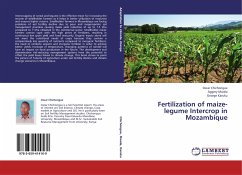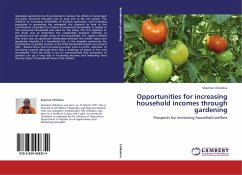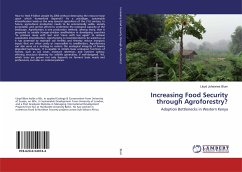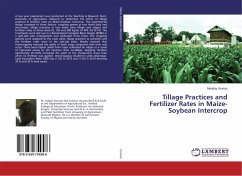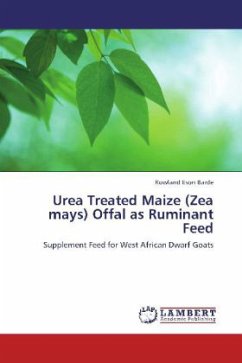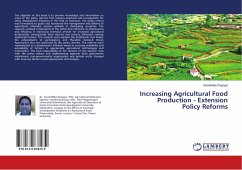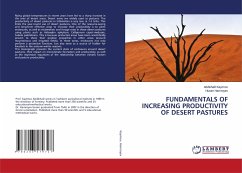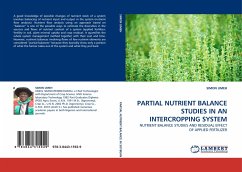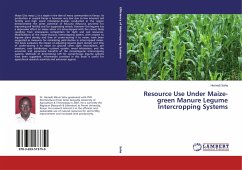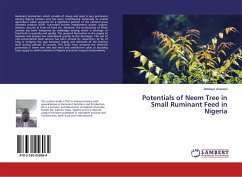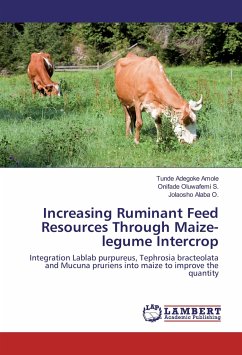
Increasing Ruminant Feed Resources Through Maize-legume Intercrop
Integration Lablab purpureus, Tephrosia bracteolata and Mucuna pruriens into maize to improve the quantity
Versandkostenfrei!
Versandfertig in 6-10 Tagen
32,99 €
inkl. MwSt.

PAYBACK Punkte
16 °P sammeln!
In tropical and sub-tropical developing countries, intercropping cereals with forage legumes has been shown to improve both the quantity and quality of fodder. There is a need to integrate forage legumes into arable crop-based farming systems of the humid zone to base sustaining food and feed production. These herbaceous forage legumes have the potential to contribute to both crop and livestock production while limiting the degradation of the natural resource. The project is aimed at integrating three pasture legume species Lablab purpureus, Tephrosia bracteolata, and Mucuna pruriens into a ce...
In tropical and sub-tropical developing countries, intercropping cereals with forage legumes has been shown to improve both the quantity and quality of fodder. There is a need to integrate forage legumes into arable crop-based farming systems of the humid zone to base sustaining food and feed production. These herbaceous forage legumes have the potential to contribute to both crop and livestock production while limiting the degradation of the natural resource. The project is aimed at integrating three pasture legume species Lablab purpureus, Tephrosia bracteolata, and Mucuna pruriens into a cereal crop (maize) in order to improve the quantity and quality of the feed resource (maize stover + forage legume silage) available for livestock after crop harvest. Undersowing of maize with the legumes could be delayed till the 4th weeks without any deleterious effect on weight and number of fresh cobs, DM yields of the legumes and CP contents of the mixture. Silage from the mixture of maize-Lablab 2WAP (70:30) can provide up to 28.33% crude protein which is adequate for ruminant animals to enhance dry season feeding.



